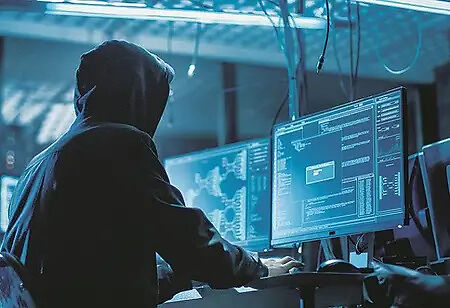
How Russia's War is Disturbing India’s Digital System?


World War II was one of the transformative events of the 20th century. It caused the death of three percent of the world’s population. The death toll in Europe alone totaled 39 million people—half of them were civilians. Russia’s invasion of Ukraine appears to be Europe’s most serious conflict since World War II and poses a significant threat to a global economy still reeling from the epidemic. In the immediate aftermath of the Russia-Ukraine conflict, both the region and the world are affected.
Within a few days of Russia’s invasion of the Ukrainian territory, countries worldwide placed sanctions on Russia while extending their humanitarian support to the people of Ukraine. There is widespread global uncertainty about the future of business, even as peace negotiations continue. India being an emerging player in the global IT landscape with several delivery centers in and around Ukraine, the Ukraine war is likely to have significant consequences, including the trickle-down effect, on Indian IT firms.
As the Ukraine-Russia conflict enters its second month, coupled with insufficient attention toward security for the enterprise system and the large ecosystem, the crisis could hit home for companies. The tech challenges for the CXOs increase with every passing day. There could be distributed renunciation of service (DDoS) attacks, website defacement, malware infection through spear-phishing, or more. While government institutions and companies may not publicly announce their move to beef up preventive security, they may not want to err on the side of caution.
Ukraine War Disrupting Information Networks in India
The risks that India specifically faces have been flagged off earlier. The Computer Emergency Response Team (CERT-In) reported more than 11.5 lakh cybersecurity incidents during 2020. Indian power grids and banks have been at the receiving end of suspected cyberattacks in the past. In February 2022, the systems at the Jawaharlal Nehru Port Trust (JNPT) were disrupted by a technical glitch. JNPT had to make ‘alternate arrangements’ to handle the export-import container traffic after the suspected ransomware hit its operations.
According to Submarine Networks, 15 undersea cables are landing in different locations across India in Mumbai, Chennai, Cochin, Tuticorin, and Thiruvananthapuram. These could be potential targets of attacks aiming to disrupt networks. India is a global leader in digital payments, which could be at risk of disruptions in information networks.
Could the Chip Shortage Get Any Shorter?
Tracing the trigger point of chip shortage, back when the Covid-19 pandemic struck, followed by subsequent lockdowns across the world, chip-making facilities were forced to shut in countries like Japan, South Korea, China, and the US. Considering a vital aspect of a chip shortage is that it almost always causes cascading effects, added with pent-up demand could become the cause of the follow-up famine.
Furthermore, palladium and neon are two key resources for the production of semiconductor chips. Russia supplies over 40 percent of the world’s palladium, and Ukraine produces 70 percent of neon.
Given that chip-making companies have stockpiled resources owing to elevated demand during the pandemic, inventory can only last so long. If a deal is not brokered in the coming months, expect the chip shortage to worsen and for industries highly dependent on them to be similarly affected. This means significant risks are ahead for many automakers, electronic device manufacturers, phone makers, and many other sectors that are increasingly reliant on chips for their products to work. Even as estimates on how many neon chipmakers have stockpiled vary widely, the consensus is on the fact that production could be hit if the conflict goes on. Suppose stockpiles get quickly depleted, and chipmakers don’t have orders locked up in other regions in the world. In that case, it likely means further constraints for the broader supply chain and an inability to manufacture the end-product for many key customers.
Neon gas used in the photolithography process is the most common method for fabricating integrated circuits. Specifically, the neon gases used in laser machines carve the integrated circuits. But for the use of neon gas in the semiconductor industry, the gas has to reach 99.99 percent purity levels - which makes it a rarity. More than half of semiconductor-grade neon comes from Ukrainian companies Incas and Cryoin. Palladium is used for multiple purposes in semiconductor and electronic manufacturing. It is used to coat electrodes that help control the flow of electricity. It is also used in the plating of microprocessors and printed circuit boards - which is an essential process of chip making. Russia accounts for nearly half the global supplies of palladium, and the multiple trade sanctions on Moscow threaten to constrain the availability of the element.
Pavan Duggal, Supreme Court advocate, and cyber law expert revealed, “the war drew immense cyber warfare particularly targeting digital banking services and with that explains, India has to be prepared for a vicious cyberattack. I expect India’s critical infrastructure, banks, telecom network to up their securities in the coming days”.
India Could be at a Risky Spot in the Cyberworld
Russia- Ukraine war may put India at a risk of attracting cyber-attacks. Cyber security experts constantly warn the telecom, infrastructure, and banking sectors. The war is attracting a lot of cyber-attacks and malware that pose the threat of eventually scurrying their way into India’s servers. The data looted could be sold on the dark web or possibly be used against the nation. Security experts assume that the country might not be a direct target; however, it could potentially face the consequences of collateral damage. Experts are stressed about a spillover impact, implying other nations are using the distraction to their advantage to test their latest malware into the vulnerabilities of Indian servers.